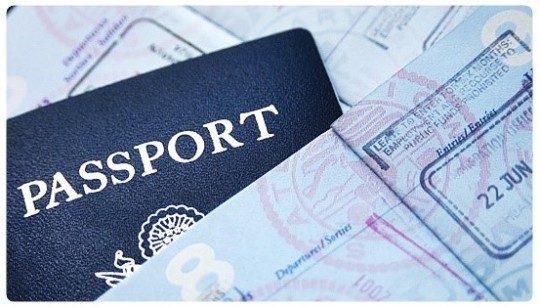#korean learning
92/93/94일 - 20210426/27/28 #한국어연습









90/91일 - 20210424/25 #한국어연습






87/88/89일 - 20210421/22/23 ❤ #한국어연습









Fear Vocab

세상에서 가장 흔한 10가지 공포증 | Top 10 Most Common Fears in the World
- 뱀공포증 | fear of snakes
- 거미공포증 | fear of spiders
- 사회공포증 | social phobia
- 광장공포증 | agoraphobia
- 고소공포증 | acrophobia
- 어둠공포증 | fear of the dark
- 악천후공포증 | fear of severe weather
- 비행기공포증 | fear of flying (lit. planes)
- 개공포증 | fear of dogs
- 치과공포증 | fear of the dentist
(all phrases are 반말/informal)
네가 가장 무서워하는 게 뭐야? | what are you most afraid of?
~(이/가) 무서워 | I’m afraid of ___
고소공포증이 있어 | I have acrophobia
높은 곳이 무서워 | I’m afraid of heights (lit. high places, which is what acrophobia is)
Personal Information Vocab

If you’re planning on going to Korea for school or work. You will absolutely have to fill out Visa paperwork. This is the first section of all Visa paperwork, but are also common words you will see on other official documentation.
어휘 Vocabulary:
인적사항 | personal details
여권에 기재된 영문 성명 | full name as shown on passport in English
- 여권 | passport
- 기재된 | written/entered
- 영문 | English (written)
- 성명 | (full) name
성 | family name (last name)
명 | given name (first and middle names)
한자성명 | Chinese characters for your name (only relevant to people that have them)
성별 | gender
남성 | male
여성 | female
생년월일 | date of birth
국적 | nationality
출생국가 | country of birth
국가신분증번호 | national identity number (to my knowledge, its the equivalent of a social security number)
질문 Questions:
이전에 한국에 출입국하였을 때 다른 성명을 사용했는지 여부 | Have you ever used any other names to enter or depart from Korea?
- 이전(에)| previous(ly)
- 한국 | Korea
- 출입국 | enter and exit
- 다른 | different/another
- 사용 | use
- 여부 | basically means “whether or not”
복수 국적 여부 | Do you have multiple citizenships/nationalities?
- 복수 | plural/multiple
대답 Answers:
아니오 | no
예 | yes
‘예’ 선택 시 상세내용 기재 | if “yes” please write details
- 선택 | choice/choose
- 시| when
- 상세내용 | details of circumstance (i.e. other names used or names of countries where you have dual citizenship)
Numbers 1-10 (comparing Korean, Japanese, and Chinese)

I’ve noticed a lot of people have been studying “The Big Three” Asian languages simultaneously or consecutively, which is great! But it can get confusing. So I decided to make this post to help relate the languages to one another to ease the learning process a bit. I learned the languages in order: Korean, Japanese, Chinese. Korean helped me with some of the Japanese pronunciation, both with some numbers being the same, and the [l/r] sound English just doesn’t have. And then when I started learning Chinese, knowing the kanji from Japanese helped me remember the number characters, and Korean helped me remember some of the pronunciation.
Disclaimers:
- Korean does use 2 counting systems, but I’ll only be showing Sino-Korean in this lesson
- I don’t use romanization, but since this includes languages other people may still be learning/want to learn, I have included it here
- 일 (il) 一 (ichi) 一 (yí)
- 이 (ee) 二 (ni) 二 (èr)
- 삼 (sam) 三 (san) 三 (sān)
- 사 (sa) 四 (yon/shi) 四 (sì)
- 오 (oh) 五 (go) 五 (wǔ)
- 육 (yook) 六 (roku) 六 (liù)
- 칠 (chil) 七 (nana) 七 (qī)
- 팔 (pal) 八 (hachi) 八 (bā)
- 구 (goo) 九 (kyu) 九 (jiǔ)
- 십 (shib) 十 (juu) 十 (shí)
New Year’s Resolutions Vocab

새해 | new year
결심 | resolution
목표 | goal (you’ll hear both 새해결심 and 새해목표)
제 새해 결심은 (매일 한국말 연습하는)것이에요 | my new years resolution is (to practice Korean every day)
살 빼기 | lose weight
(운동)시작하기 | start (exercising)
더 많이 운동하기 | exercise more
더 열심히 공부하기 | study more/harder
금연하기 | quit smoking
금주하기 | quit drinking
(술/탄산 음료/탄수화물) 줄이기 | cut back on (alcohol/soda/carbs)
더 열심히 일하기 | work harder
더 나은(엄마/아빠/누나/아들/의사/학생)되기 | be a better (mom/dad/sister/son/doctor/student)
새로운 취미 갖기 | get a new hobby
물 더 마시기 | drink more water
더 건강한 음식 먹기 | eat healthier
매일 쓰기 | write every day
책 더 읽기 | read more books
해야할 일 미루지 않기 | stop procrastinating
절약하기 | save money
정리 잘하기 | be more organized/tidy
외국어 배우기 | learn a foreign language
~ ~ ~ ~ ~
새해 복 많이 받으세요! 쌤들은 2019년에 어떤 목표를 가지고 있나요? 댓글 남겨주세요!
*~기 is a verb conjugated into like a “list form” in these examples. Swap 기 for 다 to get their dictionary form
Airport Vocab

공항 | airport
비행 | flight
비행기 | airplane
비행기표 | flight ticket
편도로 | one-way
왕복으로 | round trip
예약 | reservation
비행기 번호 | flight number
항공사 | airline
항공사 번호 | airline number
승무원 | fight attendant
비행사/조종사 | pilot
부조종사 | co-pilot
출발 | departure
도착 | arrival
국제 | international
국내 | domestic
체크인 | check-in
지연 | delay
탑승 | boarding
탑승구 | boarding gate
__ 번 게이트 | gate number ___ (Chinese numbers)
짐 | luggage
수하물 | baggage
(여행) 가방 | suitcase
수하물 찾는 곳 | baggage claim
초과 수하물 | excess baggage
창가 좌석 | window seat
통로 좌석 | aisle seat
중간 좌석 | middle seat
우선 좌석 | priority seating
빈 좌석 | empty/available seat
여권 | passport
신분증 | id
탑승권 | boarding pass
여권 심사 | passport review
관세 | customs
출입국관리사무소 | immigration office
입국심사 데스크 | immigration desk
입국신고서 | arrival card
출국신고서 | departure card
통역사 | interpreter
사업상 | for business
여행 | travel/for pleasure
